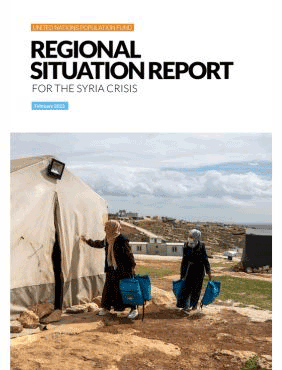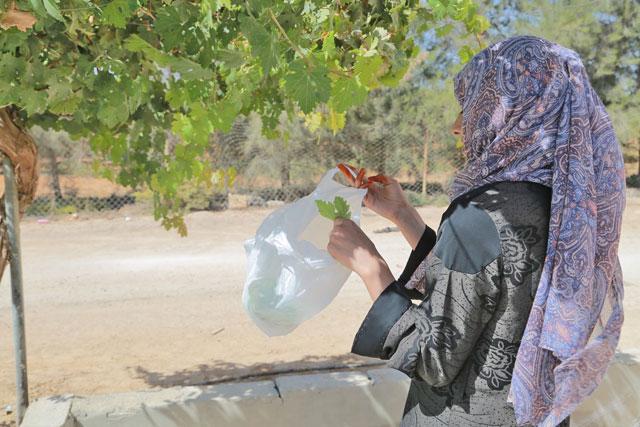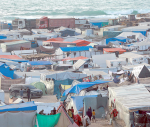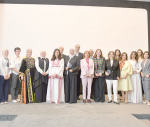You are here
Humanitarian need at ‘highest’ for Syrians, host communities in 2023
By Mays Ibrahim Mustafa - Apr 30,2023 - Last updated at Apr 30,2023

AMMAN — The humanitarian needs of Syrians and neighbouring host communities are currently at their highest, according to the most recent United Nations Population Fund (UNFPA) Regional Situation Report For the Syria Crisis.
UNFPA’s 2023 funding requirements for its regional Syria crisis response in Syria, Turkey, Lebanon, Jordan, Iraq and Egypt totals $141.9 million, the report stated.
“As of early 2023, Syrians and host communities throughout the region are living through one of the worst years of the crisis,” the report said.
Aside from the “cumulative impact” of a protracted conflict, the report attributed the deteriorating situation to the Ukraine crisis as well as ongoing humanitarian, economic, socio-political and climate-related challenges in the region, which “have exacerbated pre-existing vulnerabilities”.
This includes “chronic and new emergencies, including the massive earthquake that struck Turkey and north-west Syria in February 2023,” it added.
Jordan
With 1.3 million Syrians residing in the Kingdom, UNFPA’s humanitarian funding requirements for Jordan in 2023 stood at $12,661,200, according to the UNFPA website.
“UNFPA Jordan will continue supporting and strengthening the resilience of the national systems for delivering quality, comprehensive, integrated sexual and reproductive health services, including family planning, for all vulnerable women, youth, and adolescents, especially girls, using a health systems- building approach,” the report stated.
It also highlighted essential services that the UNFPA continues to provide to refugees and host communities.
Between January and February 2023, the UNFPA provided 12,943 people, 99 per cent of whom were female, with Sexual and Reproductive Health (SRH) services. The fund also provided 3,792 people, 97 per cent of whom are female, with gender-based violence (GBV) prevention programming, the report showed.
UNFPA also reached 1,430 people, of whom 84 per cent are female, with youth engagement activities and supported 2,311 adolescent girls through various programmes, according to the report.
Violence against women and girls
The protracted nature of the Syrian crisis has “multiplied” the risk of gender-based violence in its various forms, the report noted.
“Many Syrian refugees live in overcrowded and unsafe conditions, where women and girls are at risk of harassment, assault and exploitation,” it said.
The report further highlighted efforts to combat this issue, including the #ThisIsNotNormal campaign launched by the UNFPA “in response to increasing reports by women and girls that violence against them is becoming so widespread and unchecked, that it has been normalised in many communities”.
“Harassment, intimate partner and domestic violence, child and forced marriage, and sexual violence and exploitation are consistently reported, while new trends, such as various forms of cyber violence, have also been observed in recent years,” the report said.
Related Articles
AMMAN — The United Nations Population Fund (UNFPA) on Tuesday launched its strategy to address the needs of adolescent girls in the Whole of
AMMAN — A recent decision by the US to deny future funding to the United Nations Population Fund (UNFPA) will affect the agency's efforts to
AMMAN — A recent study indicated that gender-based violence in Jordan, mostly perpetrated by an intimate partner or member of the family, ha



















